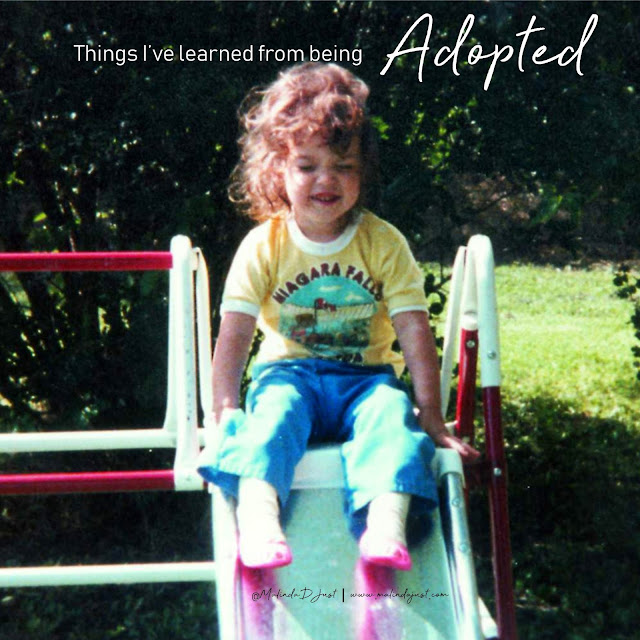when Forgiveness seems impossible
I just finished reading the novel “Gilead” by Marilynne Robinson. There are many deep thoughts to consider within the pages of this book. Today I want to talk about one in particular--forgiveness.
Forgiveness is a word that has regularly surfaced in my vocabulary, especially from 2016 forward. It’s not that it wasn’t important before. I’ve definitely had to wrestle with it. But the summer of 2016 challenged me in a very specific way...forgiving someone who had deeply and sinfully hurt my child. Complexities from that one act has reached far beyond that one moment. I’m not sure we’ve seen the complete fallout.
And it is not my story to share. It never will be my story. But the battle to agree with forgiveness is. And that’s why Robinson’s words struck me so deeply. She writes:
"He could knock me down the stairs and I would have worked out the theology for forgiving him before I reached the bottom. But if he harmed you in the slightest way, I'm afraid theology would fail me."
These are words of a father to his young son. The father is a pastor, elderly, and dying. He writes to his son in order to say and teach things that his time on earth would not allow. In these words, this father says that he would quickly be able to come up with reasons--theological grounds--to forgive someone who harmed him, but those same reasons would fall short if the father faced forgiving someone who hurt his child.
I wholly relate to this.
I know what the Bible says about forgiveness. It doesn’t suggest it.
The Bible actually demands it.
“Let all bitterness and wrath and anger and clamor and slander be put away from you, along with all malice. Be kind to one another, tenderhearted, forgiving one another, as God in Christ forgave you.” (Ephesians 4:31-32)
Have I been bitter? Yes. Full of wrath? Yes. Angry? YES.
Have I wanted to clamor and slander? Yes.
Have I felt ill-will? Yes.
Is this justified? I believe so.
And yet the Bible says to let those things fall away from me, rather, being kind, tenderhearted and forgiving.
“Put on then, as God’s chosen ones, holy and beloved, compassionate hearts, kindness, humility, meekness, and patience, bearing with one another and, if one has a complaint against another, forgiving each other; as the Lord has forgiven you, so you also must forgive.” (Colossians 3:12-13)
I’ve wrestled with, “When God says forgive, does He really mean it, or is there some loophole?” If there’s a loophole, I’ve wanted to find it.
I’ve read thoughts that go something like, “having a spirit of forgiveness means that if the other party came to you and repented, you could say ‘forgiven’ and truly mean it.” I took comfort in that for awhile, thinking “sure, if that happened I could forgive. So, I’m good.”
But it’s 2019 and we’re still waiting.
And in the meantime, I still struggle with anger and bitterness.
What if that repentance never comes? What if the person never comes forward to admit it and apologize? What then?
I’m convinced God means what he says...forgive as YOU have been forgiven.
And how have I been forgiven? Or, perhaps the question I really need to ask is WHEN have I been forgiven?
“For if while we were enemies we were reconciled to God by the death of his Son, much more, now that we are reconciled, shall we be saved by his life.” (Romans 5:10)
I was an enemy. Now I’m not. And that didn’t happen when I was on God’s side. No, my reconciliation happened while I was an enemy.
Romans 2:1 in the ERV is particularly hard-hitting: “So do you think that you can judge those other people? You are wrong. You too are guilty of sin. You judge them, but you do the same things they do. So when you judge them, you are really condemning yourself.”
Ouch. So what does one do when you don’t want to forgive, or when it seems impossible? When, really, the evidence screams that you’re justified in not? When, as far as you can tell, the other party hasn’t made a move to do anything scripture lines out for repentance or reconciliation? When it would definitely be easier to continue in wrath, anger and bitterness?
As I was re-hashing this topic after reading “Gilead” I started to think about this in a new way--through the Father-Son relationship. God specifically gives us “parent-language” to describe an element of the Trinity...Father and Son. This parent-language helps me have a little insight into the relationship. Like my child, Jesus was sinned against and the majority of people weren’t sorry. And yet, with Jesus as our Lord and Savior, we are reconciled to God the Father "while we were still sinners." This same Jesus, who can sympathize with our every weakness (Heb. 4:15), taught us to pray, “forgive us our trespasses as we forgive those who trespass against us.” (Matthew 6:12). He quickly follows-up in verse 14 with this: “For if you forgive others their trespass, your heavenly Father will also forgive you, but if you do not forgive others their trespasses, neither will your Father forgive your trespasses.”
Knowing this, how can I disregard forgiveness? How can I not extend it--even to someone who hurt my child--when I myself have been forgiven through Christ? The answer is not found in mustering my own forgiveness. It is not found in simply talking myself into trying to move on as well-meaning people [or maybe not] have insinuated… “well, we just have to forgive and forget”; or “now you need to forgive and move forward.” Trying to do that in my own strength fails every time.
Forgiveness is something beyond my own strength. In fact, I’ve needed to admit that I am WEAK to forgive. I’ve needed to admit that if scripture didn’t specifically say “forgive as you have been forgiven,” I wouldn’t do it. I know what I should do. But in this instance, I cannot--not on my own.
I have pleaded with the Lord to enable me to forgive. And I believe His answer lies in Him--in looking at Him--and in planting myself firmly in His Word, trusting what it says.
And so much of my ability to trust rests in knowing Him. Knowing that He is a God of justice. He doesn’t tell me to “forgive and forget.” He says, “forgive and leave the justice to me.” Either Christ will pay for the injustice forced on my child, or the other person will. However that plays out is not up to me. I’m learning to take comfort in knowing God is just. Someday He will right all wrongs and give fair rewards and punishments. With this in mind, even on the bad days when I’m impatient for justice, I can truly say that I do not want eternal punishment for the offender. I pray for the type of godly grief that leads to repentance: “As it is, I rejoice, not because you were grieved, but because you were grieved into repenting. For you felt a godly grief, so that you suffered no loss through us. For godly grief produces a repentance that leads to salvation without regret, whereas worldly grief produces death.” (2 Corinthians 7:9-10)
Paul writes in Romans: “Beloved, never avenge yourselves, but leave it to the wrath of God, for it is written, ‘Vengeance is mine, I will repay, says the Lord.’ To the contrary, ‘if your enemy is hungry, feed him; if he is thirsty, give him something to drink; for by so doing you will heap burning coals on his head.’ Do not be overcome by evil, but overcome evil with good.” (12:19-21)
God has brought this scripture to mind more than once in this messy place. I am to leave vengeance to Him. This is something I am becoming more and more settled with, as I wrestle with this whole concept of forgiveness. I can trust God to be both just and good. I can’t explain it, but I can believe it. He will do what is right. He will not lie. As I learn to know Him more, I can stand firmer on His Word. This is a comfort.
I have also found comfort knowing that forgiving doesn’t mean forgetting. It doesn’t mean ignoring evil, because God Himself will provide justice--whether on this earth or not. I can know that forgiveness co-exists with justice. And I can release personal vengeance, where I’m no longer “holding a grudge or cherishing bitterness against another person or harboring any desire to harm them.” (Grudem, Systematic Theology, p.386)
It’s not easy, and I’m still learning. I am not currently free of holding a grudge or cherishing bitterness. I pray I eventually will be. I do not always immediately succeed in grabbing hold of Truth and standing firm. There have been days where I thought I might explode with rage after seeing something that triggered raw emotions and sent a deluge of memories. (In those moments I could have easily competed with Anger on “Inside Out” and incinerated a window with head-flames.)
But also, in these moments of desperate weakness, I have felt God graciously pull me back and remind me that I, too, have been forgiven much. That I, too, have fallen short of His glorious standards. That I, too, am still being sanctified. That I, too, am desperately and utterly dependent on Jesus Christ as my Lord and Savior. That I, too, as a mom struggling to forgive an offense against my child, am absolutely weak...and that’s where He is strong. And His grace is sufficient for me.
“But he said to me, ‘My grace is sufficient for you, for my power is made perfect in weakness.’ Therefore I will boast all the more gladly of my weaknesses, so that the power of Christ may rest upon me. For the sake of Christ, then, I am content with weaknesses, insults, hardships, persecutions, and calamities. For when I am weak, then I am strong.” (2 Cor 12:9-10)
Included in TOP POSTS of 2019
Let's connect!



Comments
Post a Comment